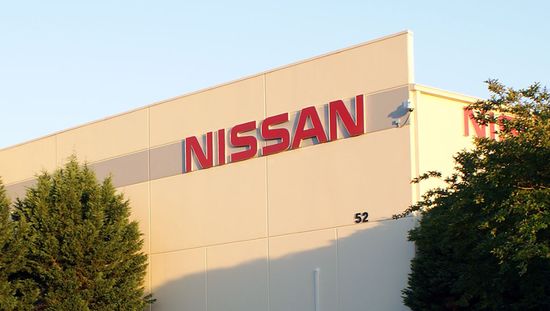
Amid the turmoil and changes in the global auto industry in recent years, Nissan Motor, the once boundless Japanese auto giant, is facing unprecedented challenges. According to the latest reports, Nissan Motor, due to continued losses, plans to carry out large-scale layoffs and capacity cuts around the world, the news is undoubtedly in the automotive industry and the entire industrial field set off a shock wave. So how did Nissan get to this point? What are the deep reasons behind it?
From the popularity of the early Datsun brand in the global market to the later cooperation with France's Renault Automobile company, Nissan has won wide recognition from consumers around the world with its excellent quality, advanced technology and unique brand charm. However, in recent years, with the intensification of competition in the global automobile market, the rise of new energy vehicles and the diversification of consumer demand, Nissan has gradually shown its shortcomings of slow transformation and strategic mistakes.
Increased competition in the global auto market is one of the important reasons for Nissan's troubles. In the past, Nissan has gained a foothold in the global market with its deep accumulation of family cars and commercial vehicles. However, with the rise of Chinese auto brands and the continued strength of traditional auto powers such as Germany and the United States, the competition in the global auto market is becoming increasingly fierce. Especially in emerging markets, such as China, India and other places, local auto brands by virtue of cost-effective advantages and policy support, quickly seize market share, Nissan Motor and other traditional foreign brands formed a huge impact.
The rapid development of new energy vehicles has also brought tremendous pressure to Nissan. In recent years, with the promotion of environmental awareness and technological breakthroughs, new energy vehicles have been rapidly popularized around the world. Tesla, BYD and other new energy vehicle companies with innovative technology and forward-looking strategies, quickly rose to industry leaders. The layout of Nissan in the field of new energy vehicles is relatively lagging behind, although it has also launched several new energy vehicle products, but it has failed to compete with competitors in terms of technical performance or market influence.
The diversification of consumer demand is also a challenge for Nissan. With the increasing demand of consumers for personalized, intelligent and connected automobile products, traditional automobile enterprises must make more efforts in product innovation and service upgrading. However, the pace of Nissan's transformation in this area is relatively slow, and it has not been able to keep up with the pace of market changes. Its relatively simple product line and lack of innovative products that can meet the needs of young consumers have led to the continuous loss of market share to competitors.
In addition to the challenges of the external market, Nissan's internal management problems are also an important reason for its predicament. In recent years, there have been serious incidents of financial fraud and management corruption within Nissan, which not only damaged the company's reputation, but also seriously affected its normal business operations. In order to deal with these problems, Nissan Motor has to invest a lot of energy and resources to investigate and rectify, which undoubtedly further increased its financial burden.
In addition, the cooperation between Nissan and Renault has not achieved the expected results. Although the two sides hope to achieve resource sharing and complementary advantages through cooperation, in actual operation, due to cultural differences, different management concepts and the intensification of market competition, the cooperation between the two sides has failed to achieve significant results. On the contrary, due to the friction and differences in the process of cooperation, the two sides have made many mistakes in strategic planning and market layout, which further aggravated the plight of Nissan.
Under the combined effect of multiple factors, Nissan has finally reached a crossroads of large-scale layoffs and capacity reduction. Although this measure may bring some financial relief to the company in the short term, in the long run, how to achieve transformation and upgrading and rebuild brand competitiveness is the problem that Nissan really needs to face and solve.
Nissan's woes are not an isolated case, but a microcosm of the global auto industry's transformation. Under the wave of new energy vehicles, how to realize the transformation and upgrading of traditional automobile enterprises, how to maintain close contact with consumers, and how to build new competitive advantages are all problems worth pondering. For Nissan, only by deeply reflecting on its own problems and actively responding to market changes can it find a new development direction and growth point in the fierce market competition.
From the case of Nissan, we can also see that enterprises must always be vigilant and keen in the development process, timely capture market changes and consumer needs, and constantly adjust and optimize their own strategies and products. At the same time, strengthening internal management and enhancing brand image is also the key to the sustainable development of enterprises. Only in this way can we be invincible in the fierce market competition.

According to a report citing the Messenger Post of Papua New Guinea, a severe landslide occurred in the Wapenamanda area of Nga Province, Papua New Guinea recently, burying three houses and causing at least 11 deaths and over 20 people missing.
According to a report citing the Messenger Post of Papua Ne…
In the latest meeting minutes released by the Bank of Japan…
November 4th witnessed a "day of terror" in the cryptocurre…
On October 26th local time, Tesla's CEO Elon Musk announced…
When the US National Nuclear Security Agency fell into an "…
On November 3, 2025, Peru suddenly announced its diplomatic…